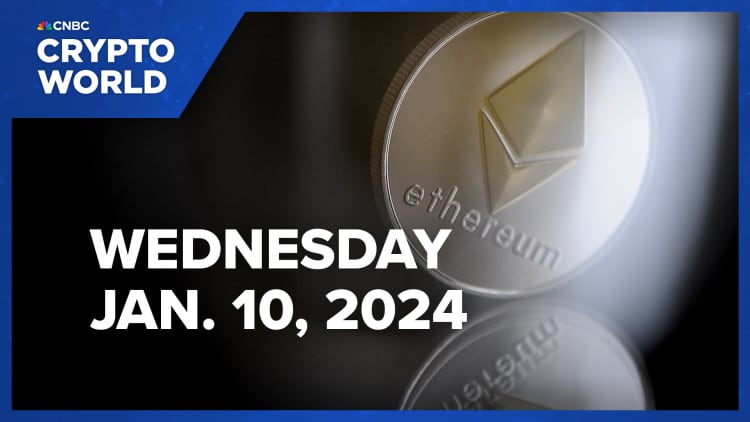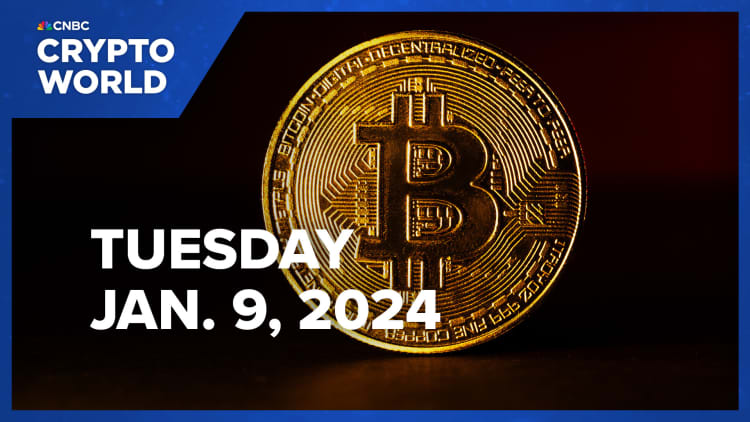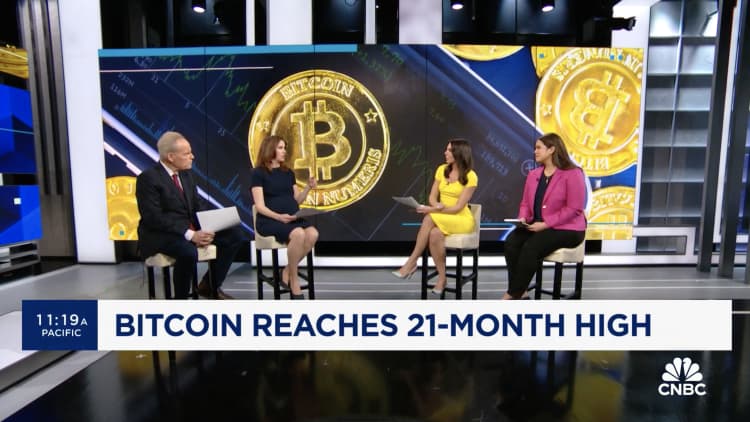
Omar Marques | Lightrocket | Getty Images
It’s cheaper than ever to buy bitcoin.
After ten years of rejections, the SEC on Wednesday approved 11 applications for bitcoin exchange-traded funds submitted by some of the biggest asset managers in the world, including BlackRock and Fidelity. In many cases, investors will pay lower fees than they would if they bought the digital currency from a crypto exchange directly.
Instead of having to go to an asset exchange like Kraken, Binance, or Coinbase to purchase and hold a token like bitcoin, traders can now turn to a so-called spot bitcoin ETF for direct exposure to the digital asset market. An ETF allows investors to buy a product that tracks the price of bitcoin through the same mechanism they already use to buy stock and bond index funds. This also eliminates the burden of managing their holdings, which typically involves maintaining a cryptocurrency wallet and cold storage to safeguard that investment.

More than 52 million Americans own crypto today, but industry participants are hopeful that the slew of approvals will draw in new retail and institutional investors who have been waiting on the sidelines until traditional financial firms offered an alternative on-ramp to crypto.
“Imagine what will happen once ETFs are introduced and widely available,” Coinbase Chief Operating Officer Emilie Choi said on the company’s most recent earnings call in November. “RIAs, retirement funds, and other institutions that have been precluded from this asset class historically will gain access to crypto for the first time, and that’s very powerful.”
Prior to Wednesday’s approval, the $30 trillion advised wealth management industry in the U.S. had been mostly locked out from accessing the crypto asset class.
Traders are now flush with options for direct exposure to bitcoin, and institutional players are racing to get in the game. In the run-up to the SEC’s ultimate decision to approve spot bitcoin ETF applications, many issuers began slashing fees, as recently highlighted by CNBC’s Bob Pisani. The fees are calculated as a percentage of the holdings.
Coinbase’s transaction fee varies, with a max of 0.6% on transactions up to $10,000 in value. In the company’s most recent quarterly earnings call, Choi said Coinbase doesn’t plan to reduce transaction fees even with the emergence of cheaper ETFs. The transaction charges on Coinbase vary between its Pro platform and the retail app, where fees are higher. For retail transactions up to $1,000, the fee ranges from 1.5% to 3%.
ARK, Invesco, Fidelity, WisdomTree, and Valkyrie are all offering deals that involve fee-free trading for a certain period of time. Others are opting for discounted fees.
Among spot ETFs, the only one with a fee above 1% is Grayscale Investments, which is charging 1.5%.

The Grayscale Bitcoin Trust, or GBTC, has a few favorable characteristics. Most notably, it’s been trading since 2015 as a closed-end fund.
“GBTC was somethifng of a monopoly – they had investors stuck in GBTC paying 2% fees,” said Bryan Armour, director of passive strategies research for North America at Morningstar, a provider of investment research.
Though approval of multiple spot bitcoin ETFs translates to increased fee competition and a way out for current GBTC investors, many traders would take a capital gains tax hit if they exited their GBTC position to purchase another ETF.

Whether the appetite for spot bitcoin ETFs is overblown is another key concern among investors.
Research firm Bernstein, which billed the new spot ETFs as the “largest pipe ever built between traditional financial markets and crypto financial markets,” expects momentum to build slowly.
Analysts with JPMorgan and Mizuho have also both cautioned that investor appetite might not be there.
Unlike other commodities that are difficult to own directly, like a barrel of oil or a gold bar, bitcoin is easier to own and custody.
JPMorgan analysts wrote in a note to investors on Nov. 21, that they see gold ETFs as the most apt gauge for a cryptocurrency ETF outlook.
“Gold ETFs are currently 1.4% of above ground (investible) gold,” the JPMorgan analysts wrote. “We believe that the cryptocurrency markets are pricing in an optimistic impact from Bitcoin ETFs that is likely to fall short of expectations.”
— CNBC’s Jordan Smith contributed to this report








